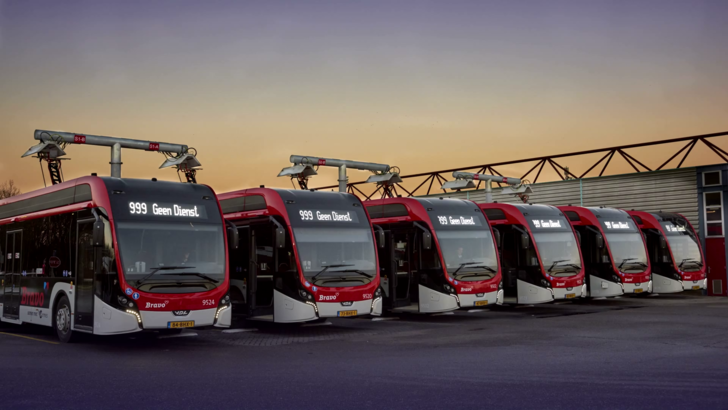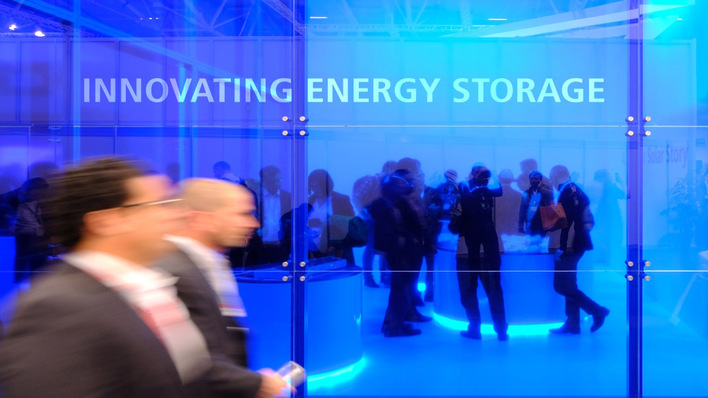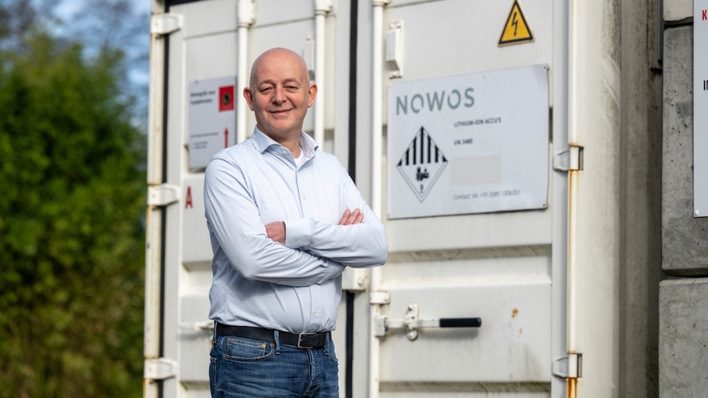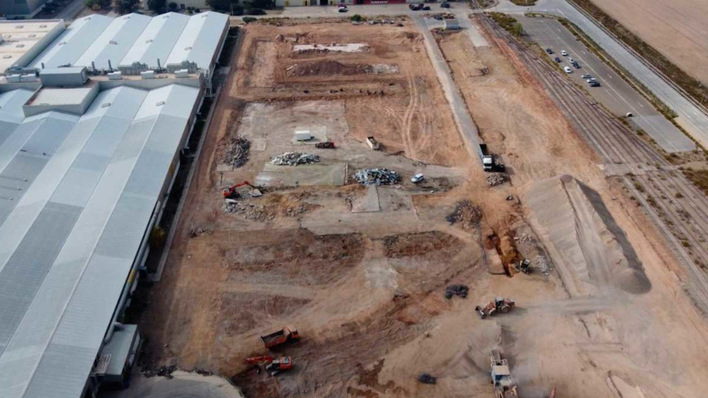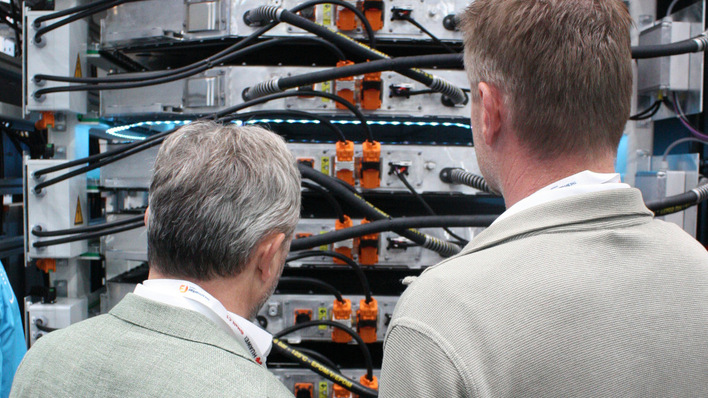The transport sector will change rapidly from highly fossil fuel-dependent to electric in the coming years. Assuming that all buses and increasing numbers of cars and lorries in the Netherlands will run on electricity after 2030, more than 150,000 tonnes of batteries will become available for recycling every year. These are currently classified as waste and mostly taken to recycling plants abroad.
Other storage projects in Europe and the US
“In Project Anubis, we are initially using batteries taken from 43 electric VDL buses operated by Transdev in Eindhoven since 2016,” explains Paul van Vuuren, CEO of VDL Bus & Coach. “These vehicles are currently getting new and larger battery packs, but the used batteries still have enough capacity to be used in stationary applications.”
See also: CATL unveils module-to-bracket battery technology for heavy trucks
Bart Kraayvanger, Manager ZE and Facility Support Transdev Netherlands says, “in 2016, together with VDL, we took the first big steps towards zero emission bus transport in the Netherlands in Eindhoven. Now we are involved in large-scale developments in the reuse of bus batteries.”
The batteries from the VDL electric buses, with a total storage capacity of 7.5 megawatt hours, will be coupled into one battery at the RWE power plant in Moerdijk. RWE is also working on battery projects in Germany, the UK and the US. RWE seeks to grow capacity to three gigawatts in the coming years.
Many more second-life batteries expected
Besides balancing the supply and demand of (renewable) energy, battery systems are also ideally suited for stabilising the energy network, due to their fast response time. “These are important conditions for making our energy supply more sustainable,” says Roger Miesen, CEO of RWE Generation. “With Project Anubis, RWE and VDL are demonstrating that technical challenges related to the construction and operation of plants like this can be overcome. And with this project, we are giving bus batteries an extended life. After that, they will undergo high-quality recycling.”
Also interesting: Zurich city cleaning vehicles to be converted to electric
The aim of Project Anubis is to demonstrate and validate a stationary energy storage system based on bus batteries. This will enable the large-scale rollout of such projects, thus contributing to the circular economy in the Netherlands. In the coming years, many batteries are expected to return from electric vehicles. Van Vuuren: “In Europe, more than 1,100 VDL electric buses operate in various cities and regions. We therefore expect to learn a lot with Project Anubis so that second-hand bus batteries can be used as energy storage systems before being recycled.” (mfo)


